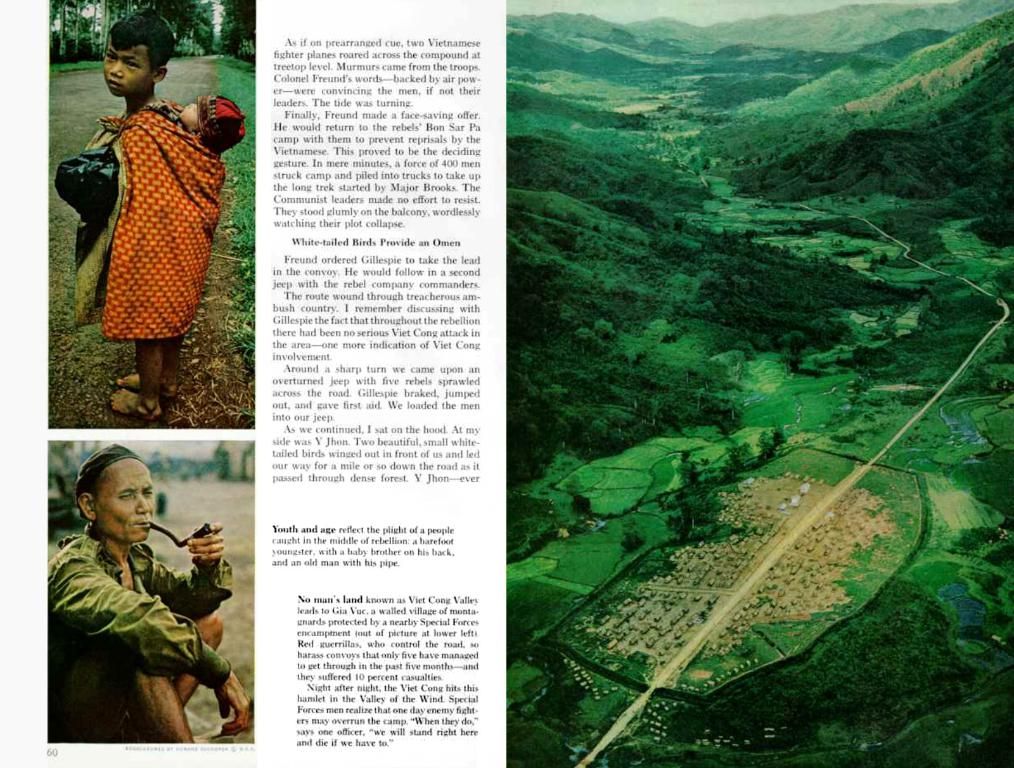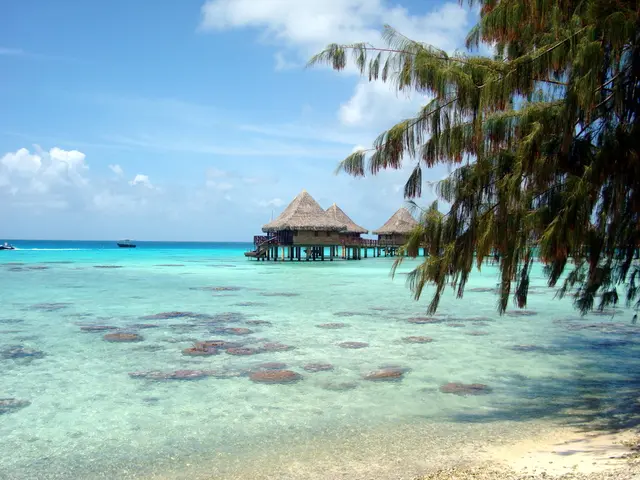The Alps Warming Temperatures: A New Era for Mountain Tourism
Escalating Mountain Climates Remodel Tourism Landscape - Increasing heat levels are redefining vacation trends
Climate change has hit hard in the Alps, causing temperature increases and escalating natural hazards. Winter sports are becoming a struggle at lower altitudes, but summer tourism might see an extension due to the heatwave. It's a complex picture according to the forum "Climate.Sport.Snow," as presented at the second Alpine Climate Summit held on the Zugspitze.
The experts shared data on warming in the Alpine region. They estimated that the average warming from pre-industrial times to the end of last year was 2.5°C in Germany, 3.1°C in Austria, and 2.9°C in Switzerland.
Swiss Glaciers Receding: A 60% Loss
The experts forecast that the average annual temperature in the region will rise by at least another 2°C by the end of the century despite global climate protection measures. These warnings are further validated by local signals from Switzerland, including the fact that glaciers have shrunk by around 60% since 1850 and the freezing level has risen by 300 to 400 meters since 1961.
Winter sports are becoming more problematic with this trend. More artificial snowmaking requires more energy and water, escalating the cost and complexity. On top of that, sporting events may be held increasingly at higher altitudes. While adjustment is feasible, its limits are becoming apparent.
Redefining Summer Tourism in the Alps
Climate experts see a fundamental shift in summer tourism across Alpine nations, creating new opportunities. As temperatures rise in Mediterranean regions, "go north," or "go up" becomes the trendy summer travel motto.
Vacations in the Alps could be more eco-friendly than other destinations, especially if you opt for public transportation. "From a climate perspective, a vacation in the Alps is a more recommendable choice," says Harald Kunstmann from the Institute of Meteorology and Climate Research at the Karlsruhe Institute of Technology (KIT).
A disastrous landslide in Blatten, Switzerland, illuminates the direct impact of climate change on research. Sven Kotlarski from the Swiss Federal Office of Meteorology and Climatology MeteoSwiss reported that a measuring station was destroyed in the landslide, which may be related to melting permafrost. Approximately two weeks ago, a rockslide in Blatten threatened around 300 inhabitants, but they were evacuated in time.
The Insider Scoop
- TheDiminishingSnowbelt: Winters in the Alps are getting leaner, threatening the viability of ski resorts at lower altitudes and causing economic turmoil for affected communities. Innovative tourism models that emphasize sustainable practices and off-season activities are gaining traction as alternatives[1][2][4].
- Eco-Friendly Travel: The Alps provide a viable, low-carbon holiday option, especially when traveling by public transportation. This eco-conscious approach could help steer travelers away from carbon-intensive trips, reducing the overall carbon footprint of the tourism industry[1][4].
- Mountain Adaptation Strategies: Efforts are underway to avert the devastating impacts of climate change on the Alps. Projects like BeyondSnow are developing tools to help destinations enhance their resilience and plan for future challenges, including new tourism models[1].
- Glaciers and Water Resources: The receding Alpine glaciers are putting a strain on water resources necessary for human activities, ecological systems, agriculture, energy production, and tourism. Integrated water management is becoming increasingly crucial in addressing these challenges[2].
- Climate-Resilient Development and Innovation: The accelerated pace of climate change in the Alps necessitates a transformative approach to tourism planning, focusing on sustainability, resilience, and the diversification of tourism offerings beyond the traditional winter and summer activities.
- The community policy in mountain regions may need to adapt to the new era of Alpine tourism, focusing on sustainable practices and off-season activities to support ski resorts facing decreased snowfall and economic instability due to climate change.
- As warmer temperatures in Mediterranean regions increase, a growing interest in eco-friendly travel is expected, with experts suggesting that vacations in the Alps could provide a low-carbon holiday option, especially for those choosing public transportation.
- Given the rising temperatures and the destruction caused by landslides and melting permafrost, environmental science plays a significant role in understanding the impact of climate change on the Alps, and initiatives like climate-resilient development and innovation are essential for ensuring the region's long-term sustainability and adapting to the challenges of climate-change-induced natural hazards.







